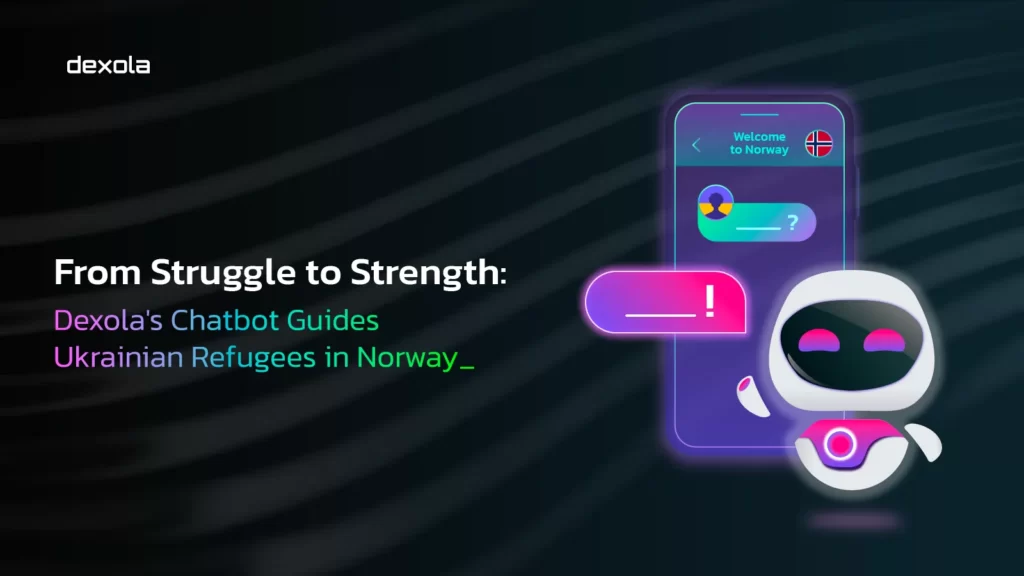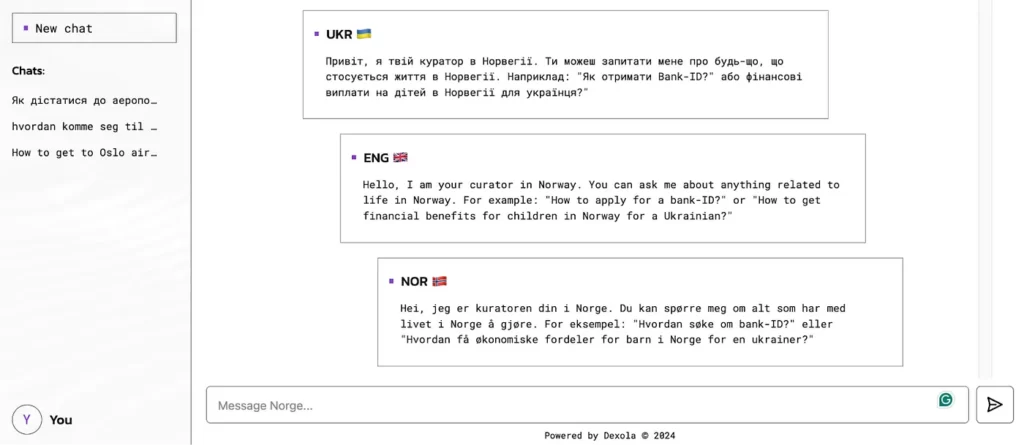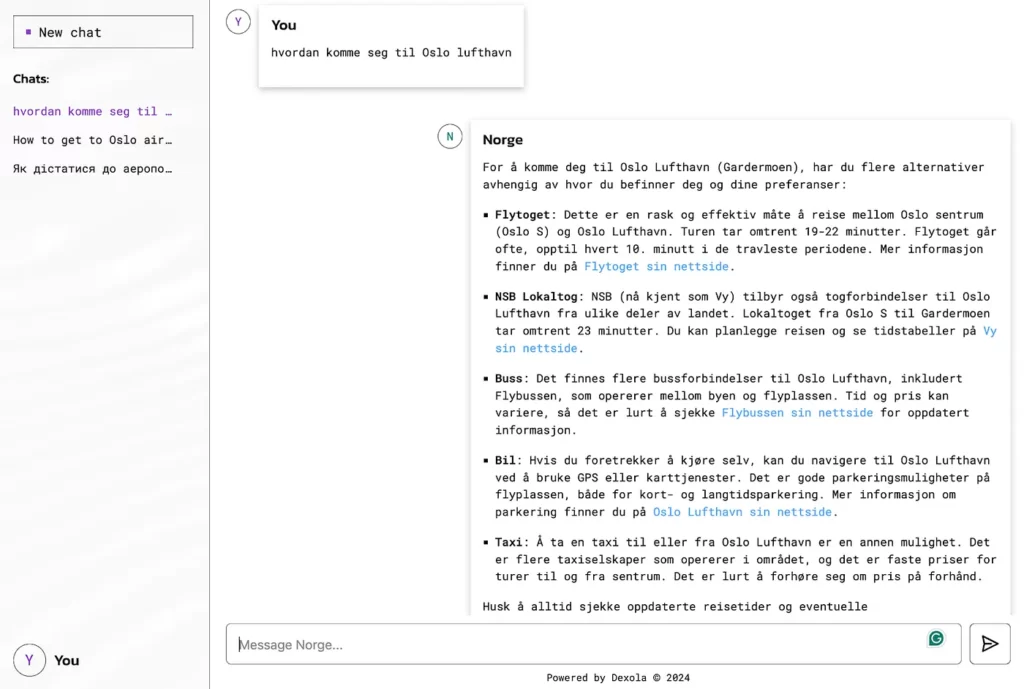From Struggle to Strength: Dexola’s Chatbot Guides Ukrainian Refugees in Norway

Navigating a new country turns out to present a multitude of challenges for refugees, from paperwork and finding a place to live to getting their children settled into school and opening a bank account.
To make these transitions smoother for Ukrainian refugees in Norway, Dexola has launched a free chatbot, Norway Assistant, designed for fast and efficient access to vital regional information. Anton Vokrug, a co-founder and business adviser at Dexola, spearheaded the investment in this project.

Introducing the Norway Assistant Platform
Norway Assistant is an AI chatbot dedicated to providing answers strictly related to life in Norway. Should there be any attempt to inquire about unrelated topics, like the weather in Egypt, the chatbot politely declines, stating, “Sorry, I can only answer questions related to Norway.”
The digital assistant is multilingual, offering support in Ukrainian, English, and Norwegian. We don’t collect or keep any personal data on our side. The chat history with all user questions and chatbot responses is stored directly in the browser of the accessing device. Users have the option to review recent chats and clear outdated conversations as needed in the sidebar on the left.

Beyond mere text responses, the Norway Assistant enhances its replies with links to credible sources related to the question. This feature empowers users with trustworthy information and the means to go deeper into specifics through official websites.

Developing the Norway Assistant Chatbot
Our journey into AI technology began with products DataProm and DataTrading in the years 2015–2017. Initially, developing AI platforms and training neural networks was a ground-up process that could last months or even years and required constant support from additional services. The emergence of large language models (LLMs) such as Chat GPT and Claude marked a pivotal shift in the AI industry.
To create the Norway Assistant, the Dexola developers utilised Chat GPT, tailoring it specifically for the needs of Ukrainian refugees in the country of midnight sun. The fine-tuning and testing phase of the platform was remarkably brief, spanning just two weeks.
During its setup, to ensure the platform remained focused and efficient, we integrated an anti-abuse system. It plays a crucial role in minimizing unwarranted queries, thereby reducing operational costs for the chatbot — a charity venture of Anton Vokrug.
The platform also discourages spam by prompting users who submit queries more frequently than every 30 seconds to complete a CAPTCHA, ensuring the participant is not a bot.
For financial optimization, we also implemented a daily cap of 20 questions per IP address, though this strategy is currently under evaluation for its efficacy in cost management. Regardless of whether the project is commercial or charitable, we always prioritize the economy of client expenses, aiming for the most balanced business model.
Evaluating and Perspectives of the Norway Assistant Platform
The chatbot’s ability to provide short, precise, and informative answers has become a daily boon for Ukrainian refugees, helping them in navigating various facets of life in Norway.
The technical solution turned out to be both simple and elegant, leading Dexola to consider expanding the product by introducing similar platforms in other countries. Given its significant social value, Norway Assistant and related products could be eligible for grants and government funding.
At the moment, we’re gearing up to develop a Telegram bot modeled after the Norway Assistant chatbot, with plans to expand it to other messengers.
The Bottom Line
The Norway Assistant chatbot has shown how innovations in the artificial intelligence industry can greatly improve the lives of socially vulnerable groups of people by offering them pertinent information and support.
This project is not only practical and effective but also guides future tech solutions that help with the integration and adaptation of Ukrainian refugees.

